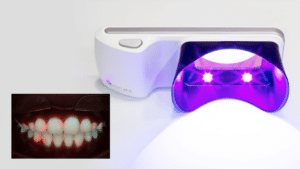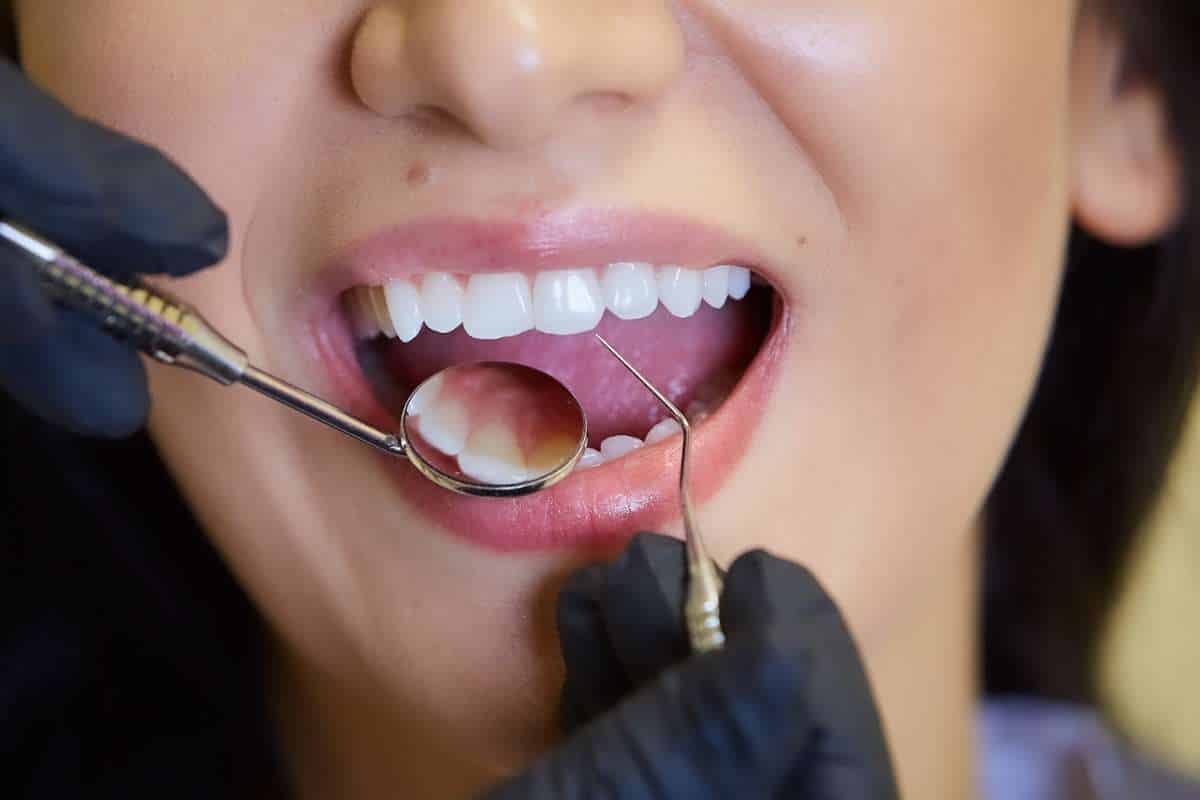When was the last time you gave your teeth the love and care they truly deserve? Too often, we neglect our dental hygiene and fail to realize the consequences until it’s too late. We ignore the early signs of plaque buildup, gum inflammation, and potential cavities, all of which could lead to serious oral health issues down the line. We often underestimate the importance of routine professional dental cleanings, specifically scaling, until we find ourselves facing oral health issues that could have been easily prevented. The comfort of fresh breath and the peace of mind of knowing that your oral health is in top shape. Let’s take a closer look at the everyday benefits of routine professional dental cleaning, and why trusting this essential care to experts like Dr. Vikram Pandit and Dr Pratibha Pandit of Pandit Clinic, Pune can transform your oral health and overall well-being.
What is Scaling?
Scaling, also known as professional dental cleaning, is a dental procedure that focuses on removing plaque, tartar, and stains from the surface of your teeth. Plaque is a sticky film of bacteria that naturally forms on your teeth and, if not removed regularly, hardens into tartar. This build-up can lead to gum disease, tooth decay, and other oral health issues. While regular brushing and flossing are crucial for maintaining good oral hygiene, they often cannot remove plaque and tartar entirely, especially in hard-to-reach areas of your mouth. Scaling, typically performed by a dental professional, uses specialized tools to thoroughly clean these areas, ensuring that your teeth and gums stay healthy and free from disease. This procedure not only improves the health of your mouth but also enhances the appearance of your smile by removing surface stains caused by various colored foods and drinks.
Why is Scaling Required and its Practical Benefits
Scaling, or professional dental cleaning, is a critical aspect of maintaining optimal oral health. It goes beyond what regular brushing and flossing can achieve, addressing issues that daily hygiene practices often miss. Here’s why scaling is necessary:
- Prevention of Gum Disease: Gum disease, also known as periodontal disease, typically begins with bleeding gums or gingivitis, an inflammation of the gums caused by plaque buildup. If left untreated, gingivitis can progress to periodontitis, a more severe form of gum disease that can lead to tooth loss. Scaling removes the plaque and tartar that cause gum inflammation, preventing the onset and progression of gum disease.
- Protection Against Tooth Decay: Plaque is a sticky film of bacteria that feeds on sugars in your food, producing acids that can erode tooth enamel and lead to cavities. Regular scaling eliminates plaque and tartar, significantly reducing the risk of tooth decay and cavities.
- Prevention of Tooth Loss: Advanced gum disease can cause the gums to recede and the bone supporting the teeth to deteriorate, leading to tooth sensitivity, loose teeth and eventually tooth loss. Scaling helps maintain healthy gums and bone structure, preserving your natural teeth.
- Reduction of Bad Breath: Persistent bad breath, also known as halitosis, can be embarrassing and affect your personal and social life. Plaque and tartar buildup, as well as food particles trapped between teeth, can contribute to bad breath. Professional cleaning helps eliminate these culprits, leaving your breath fresher and your confidence higher.
- Overall Health Benefits: Oral health is closely linked to overall health. Studies have shown connections between gum disease and systemic conditions such as heart disease, diabetes, and respiratory issues. By maintaining good oral hygiene through regular scaling, you are also contributing to better overall health.
- Early Detection of Dental Issues: During a scaling procedure, your dentist can identify early signs of dental problems such as cavities, broken fillings, jaw-cysts and gum disease. Early detection allows for timely intervention, preventing more severe and costly treatments in the future.
- Smooth and Clean Teeth: After scaling, your teeth feel smoother and cleaner. This makes it harder for plaque to adhere to the teeth, promoting better oral hygiene and reducing the risk of future plaque buildup.
- Enhanced Aesthetic Appearance: Stains from coffee, tea, wine, food and tobacco can dull your smile. Scaling removes these stains, revealing a brighter, more attractive smile. This aesthetic improvement can have a profound impact on your social interactions and self-image.
- Specific benefits of scaling: Scaling has profound benefits for pregnant women, people with dental implants or bridges, and patients with diabetes and other medical conditions.
Ready for a Confident Smile?
How is Scaling Performed?
The scaling process is a meticulous procedure carried out by a dental professional to ensure thorough cleaning of your teeth and gums. Here’s a step-by-step breakdown of how scaling is typically performed:
- Initial Examination: Before beginning the scaling procedure, Dr. Vikram Pandit will conduct a thorough examination of your mouth. This includes checking for signs of gum disease, tooth decay, and other oral health issues. X-rays may be taken if needed to assess the condition of your teeth and jawbone.
- Plaque and Tartar Removal: Using specialized instruments, such as a scaler or an ultrasonic scaling device, Dr. Pandit will carefully remove plaque and tartar from the surface of your teeth. The ultrasonic scaler uses vibrations and a cool water spray to break up tartar and flush away debris. This process is repeated along the gum line and between the teeth to ensure all build-up is removed.
- Scaling Below the Gum Line: In cases where tartar has built up below the gum line, subgingival scaling is performed. This involves cleaning the roots of your teeth to remove plaque and tartar deposits that have accumulated in the pockets between your teeth and gums. This step is crucial for preventing and treating gum disease.
- Polishing: Once the scaling is complete, Dr. Pandit will polish your teeth to remove any remaining stains and smooth the surface of your teeth. Polishing helps make it more difficult for plaque to accumulate on the surface of your teeth in the future. A special paste is used during this step, which is applied with a rotating rubber cup or brush.
- Fluoride Treatment (Optional): After polishing, a fluoride gel may be applied to your teeth. Fluoride helps to strengthen the enamel and protect against cavities. This treatment involves applying a fluoride gel or varnish to the teeth and allowing it to sit for a few minutes before rinsing off. This is of particular importance in young children for protection against cavities and in adults for treatment of sensitivity.
- Post-Procedure Advice: Dr. Pandit will provide you with personalized advice on maintaining your oral hygiene between professional cleanings. This may include recommendations on brushing techniques, flossing, and the use of mouthwash, suitable to your condition to keep your teeth and gums healthy.
- Follow-Up Appointments: Regular follow-up appointments, generally once in six months will be scheduled to monitor your oral health and ensure that any potential issues are detected and treated early. Dr. Pandit may recommend cleanings every six months or more frequently if you have specific oral health concerns or dental implants.
By following these steps, Dr. Vikram Pandit ensures that your teeth and gums are thoroughly cleaned and well-maintained, promoting long-term oral health and a radiant smile.
Making the Right Decision is Essential When it Comes to Oral Health
Considering routine professional dental cleaning can sometimes feel like just another task on your to-do list. However, understanding the profound impact it can have on your life changes your perspective. It’s not just about cleaning your teeth; it’s about safeguarding your overall health through oral health.
Dr. Vikram Pandit’s expertise and compassionate care make the decision to prioritize your oral health an easy one. By committing to regular scaling appointments, you’re investing in a future with a healthier, brighter smile and the confidence that comes with it.
Routine professional dental cleaning, or scaling, is an essential aspect of maintaining optimal oral health. The practical benefits are vast, from enhanced self-esteem to the prevention of serious dental issues. Under the expert care of Dr. Vikram Pandit, you can experience these benefits firsthand. Don’t wait for dental problems to arise; take proactive steps today for a healthier tomorrow.
The Expertise of Dr. Vikram Pandit
Dr. Vikram Pandit, with his extensive training and experience, is a trusted name in oral and maxillofacial surgery. His practice is not just about treating conditions but also about preventive care, ensuring his patients maintain optimal oral health. Here’s why choosing Dr. Pandit for your routine dental cleanings can make a significant difference:
- Comprehensive Care: Dr. Pandit’s approach is holistic, considering the impact of oral health on your overall well-being. He provides personalized care tailored to your specific needs, ensuring that every aspect of your oral health is addressed.
- Advanced Techniques: Utilizing the latest technology and techniques, Dr. Pandit ensures that your scaling procedure is thorough and effective. His continuous pursuit of advanced training means you’re in the best hands possible.
- Patient-Centered Approach: Dr. Pandit is known for his compassionate and patient-centered approach. He takes the time to explain procedures, answer questions, and alleviate any concerns you might have, making your dental visits as comfortable and stress-free as possible.
- Reputation for Excellence: As a visiting consultant at top hospitals in Pune and a speaker at various conferences, Dr. Pandit’s reputation for excellence is well established. His commitment to his profession and his patients is evident in the quality of care he provides.
Discover the Magic of Dental Scaling: Book Your Appointment with Dr. Vikram Pandit Today!
You Might Be Interested In

See What Your Teeth Are Hiding with Qscan Plus for Better Oral Health
Oral health is an integral part of overall well-being, yet issues like plaque buildup, cavities, and dental diseases often go unnoticed until they become serious problems. At Pandit Clinic, we prioritize cutting-edge solutions that enhance diagnosis and treatment precision.

Do Dental Sealants Really Protect Your Child’s Teeth from Cavities
Let’s face it—molars are troublemakers when it comes to tooth decay in kids. They have grooves and pits where food loves to hide, making it








